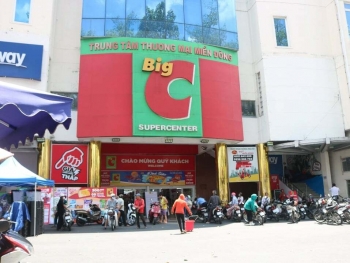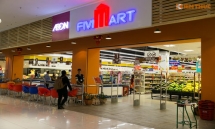Vietnam's potential convenience store chain, Which has the most market share?
| One Big C supermarket in Vietnam to close due to high rent | |
| Supermarkets offer promotion after national social distancing ends | |
| Vingroup acquires supermarket chain Fivimart |
In the recent report “Vietnamese retail: a quick transition to multi-output sales” by Deloitte, there are 3,450 supermarkets across the country by the end of 2019, with the combined floor space of 1.6 million square meters. Apart from other retail channels, convenience stores realized the highest revenue growth in 2019 – reach 16%.
Saigon Co.op and Bach Hoa Xanh claimed 43% and 14% market share respectively. The stable growth from domestic retail enterprises in the last 4 years was attributed to their thorough knowledge about the domestic market, as well as developing new brands.
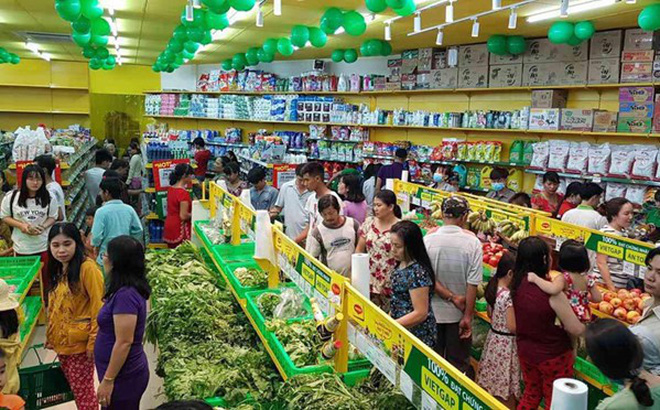 |
| Bach Hoa Xanh has 43% in Fresh food market share in Vietnam (source: mwg.vn) |
On the other hand, in the supermarket sector with 58 department stores, the Thai firm - Big C represents 57.6% market share. Saigon Co.op is the only Vietnamese name that was able to compete with international megamalls like Lotte Mart, Aeon Mall, and E-Mart.
According to Deloitte, during the Covid-19 pandemic, convenience stores and supermarkets realized a surge in terms of demands, prevail over brick and mortar retailers. This might due to the multifarious of these convenience stores, it shortens customers’ commutes, thus reduces exposure to the virus.
The report provided an example of Saigon Co.op. Orders by phone increased 4 to 5 folds, while the number of visits in its eCommerce website shot up to 10 times since January.
However, in general, Deloitte claims that urban consumers still prefer convenience stores and shops for the accessibility of this format. Supermarkets are only known for purchases in large quantities.
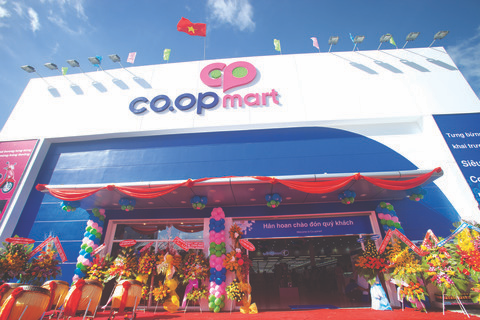 |
| Coop Mart with more than 30 years in Vietnamese market (source: congan.com.vn) |
In 2019, the number of convenience stores in the country reached 1,289, this was an increase of 101 shops compared to 2018. Henceforth, the market size has grown to 4.4 trillion dong (US $189.8 million) – approximately 18% growth in terms of cumulated revenue, in which the number one position belongs to Family mart, Circle K and B’s Mart with 21.4%, 20.7%, and 9.6% market share respectively.
Remarkably, Deloitte’s report shows that the Covid-19 actually brought new customers to the convenience shops. This retail output reached its peak in March.
Vietnam is being considered an emerging e-commerce market, attracting numerous new domestic and international players into the field. In the 2016 – 2019 period, roughly a total of $1 billion was invested in this sector.
After the Covid-19 pandemic, the majority of consumers would be getting familiar with buying online, creating a significant increase in shopping through this channel. Deloitte predicts this would be a long-term trend that retailers are to keep in mind.
 |
| Supermarket and convenience stores are taken over the traditional wet market (source: pexel photo) |
In other words, Deloitte believes that Covid-19 shifted the current into multi-channeled shopping. For retailers with brick and mortar shops combined with online stores, the report recommends them to invest more into online outputs in order to provide better purchasing experiences, for example, “scan-and-go” technology (scan product’s barcodes and contactless payment).
Meanwhile, pure e-commerce firms need to focus on introducing the flexibility and transparency to their users, like allowing customers to supervise the logistic process or choosing delivery time.
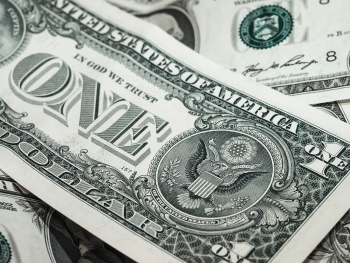 | Vietnamese businesses borrow 65% of its equity? Thousands of listed firms in Vietnam are heavily leveraged. But under expert's scrutinizes, this is not a pressing problem. |
 | New foreign investment wave begins in Vietnam despite Covid-19 Under the impacts of Covid-19 and the US-China trade tensions, the new wave of foreign investments into Vietnam has become more visible. Specifically, there have ... |
 | New Law on Investment in Vietnam: Favour of foreign investment The Vietnamese National Assembly has adopted the new Law on Investment, with new rules in favour of foreign investment, including from the US, which is ... |
Recommended
 Economy
Economy

